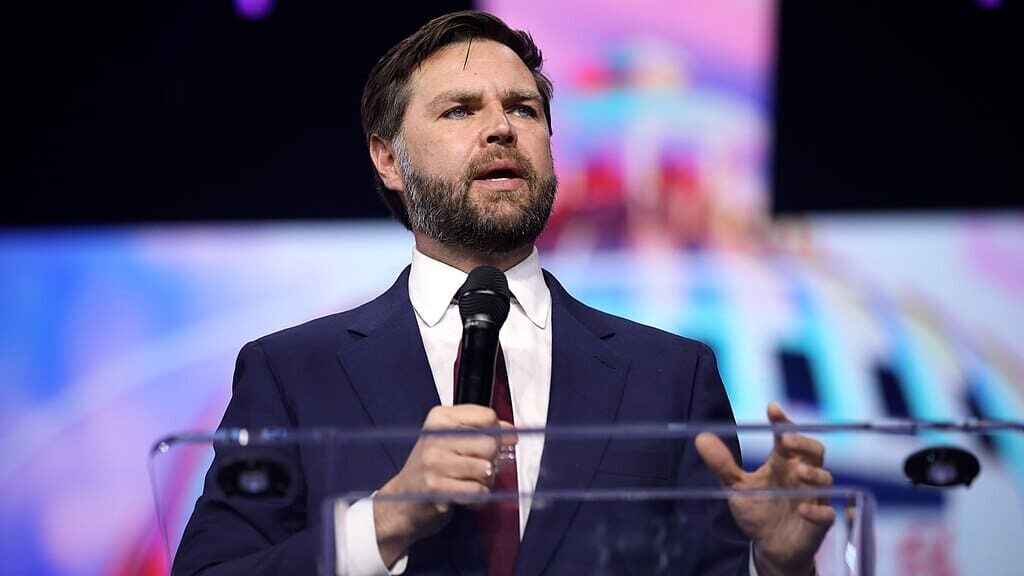
Photo: Gage Skidmore from Surprise, AZ, United States of America, CC BY-SA 2.0, via Wikimedia Commons
Donald Trump’s pick of Ohio senator J.D. Vance as his vice presidential nominee at this week’s Republican National Convention in Milwaukee has unsettled leading Eurocrats. The 39-year-old senator is opposed to continued American support for the Ukrainian cause.
Trump looks increasingly likely to trounce incumbent Joe Biden in November’s presidential election. His decision to pick Vance as his running mate is already being treated as a “disaster” by one anonymous EU official who fears the ending of American military aid to Ukraine.
A vocal opponent of recent aid packages to Kyiv and Ukraine’s potential NATO membership, Vance has declared candidly that he doesn’t “really care what happens to Ukraine one way or the other,” even objecting to Ukrainian President Zelensky’s appeal to the U.S. Senate in December of last year.
In contrast, Vance is hawkish about the rise of China, leading some in the legacy media to theorise about his impact on EU-Chinese trade relations and Taiwan. Brussels itself aspires to find a unified policy line to address growing Sino-U.S. tensions.
The VP candidate gave his thoughts on European military affairs in an op-ed with the Financial Times last year, explaining how America needed “allies” and “not client states” as he implored Europe to remilitarize in order to be able to defend itself.
The question each European nation needs to ask itself is this: Are you prepared to defend yourself? And the question the US must ask is: if our European allies can’t even defend themselves, are they allies or clients?
Vance’s selection and the prospect of a second Trump administration have fuelled calls for further EU “strategic autonomy” away from the American military umbrella, with arch-Eurofederalist Guy Verhofstadt asking if Europe’s elites were preparing or “shuffling the deckchairs on the Titanic.”
Many in EU policy-making circles took note of Vance’s comments on Europe during last year’s Munich Security Conference, where he implored America’s allies on the continent to “step up” as Washington looked to defend its interests against China in East Asia.
JD Vance at Munich Security Conference:
— Taylor Hudak (@_taylorhudak) July 16, 2024
"The point is not — we want to abandon Europe, the point is we need to focus, as a country, on East Asia and we need our European allies to step up in Europe." pic.twitter.com/DIuxWzXMna
While EU capitals and their press sycophants go into meltdown over Vance, some welcome his arrival on the world stage. Author and researcher with the think tank MCC Brussels Thomas Fazi was jubilant, describing it as “great news for Europe” and a blow against Europe’s “comprador elites.” Vance has previously endorsed Fazi’s warning that the Ukrainian war could lead to Europe’s deindustrialisation.
Since the announcement of his candidacy, particular online attention has been paid to Vance’s comments last week at the National Conservative conference in Washington. A GOP critic of mass immigration, he speculated about the UK becoming an Islamist nuclear state under the new Labour government of Keir Starmer.
Looking fresh and buoyant from a botched assassination attempt in Pennsylvania last weekend, Trump seems set to secure a second term in the White House. This new geopolitical reality—increasingly accepted by the mainstream media—expects Europe to be forced to face up to major changes.
